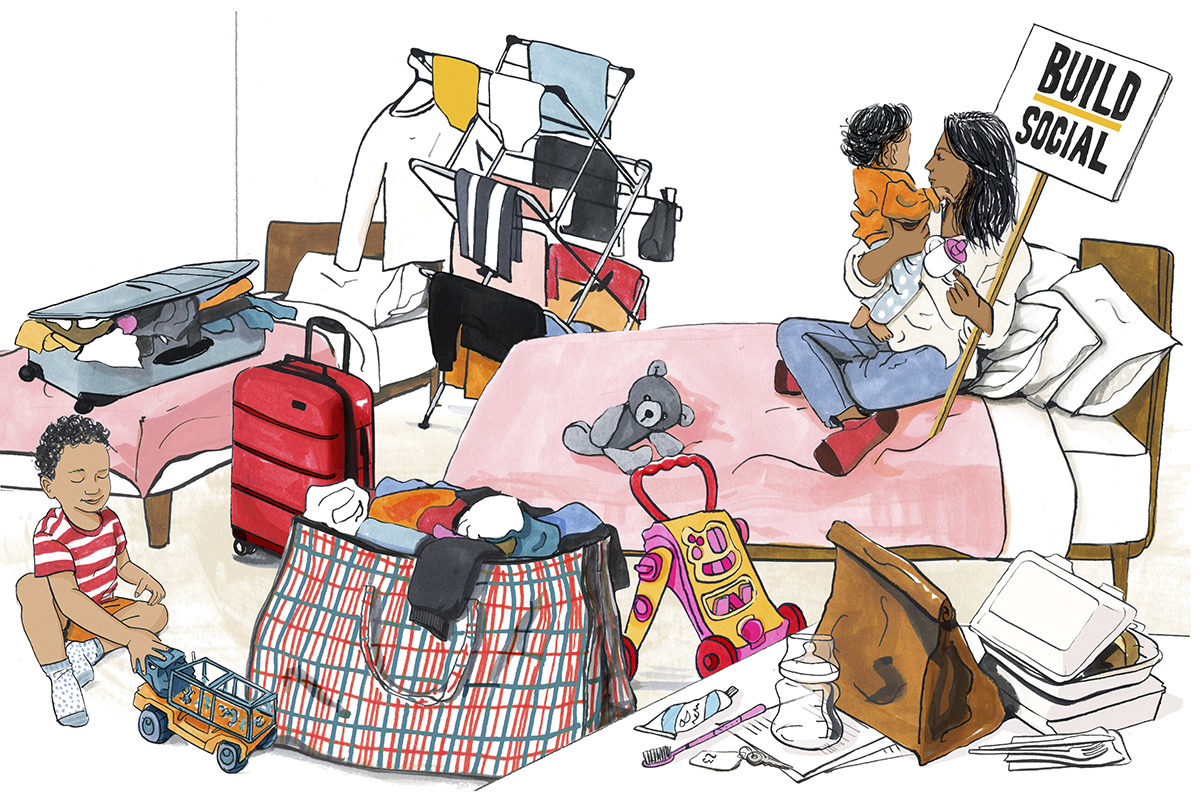You are viewing 1 of your 1 free articles
Ensuring the financial burden of building new homes doesn’t fall on social housing customers
Paul Fiddaman shares why Build Social is vital, and why it must be the government’s responsibility
For generations, social housing has played a vital role in meeting the housing needs of people across England. It provides long-term, secure, affordable accommodation for millions of people, to lay the foundations from which they can thrive.
However, the country’s current stock of social housing is shrinking constantly, with demand woefully exceeding supply.
Without urgent action from the government, by 2030, close to five million households in England will be living in unaffordable homes. All evidence points to a recurring need for at least 90,000 social rented homes a year to combat this crisis.
It’s for that reason that I welcome and support Inside Housing’s Build Social campaign.
The benefits of developing more social rented homes across our communities are endless.
Yes, it helps to meet unmet housing need, and yes it provides quality homes for those who struggle to access the market on its own terms, which is a lot of people at the moment. But alongside that, the stability it provides also has intrinsic links to other key social outcomes.
It can be linked to better educational attainment, providing our young people with the surroundings they need to succeed, as well as better health outcomes, both physical and mental.
“All evidence points to a recurring need for at least 90,000 social rented homes a year to combat this crisis”
There’s also a strong economic case for the development of more social housing, on two levels.
First, it’s hard to deliver economic growth if there aren’t good-quality homes for people to live in who work in the businesses we’re growing.
Second, construction in its own right is an important part of the UK economy, and providing stimulus through the delivery of more social housing would be a broad economic benefit. The Local Government Association estimates that every £1 invested in a new social home generates £2.84 in the wider economy.
And it’s countercyclical. When house prices are uncertain and demand for housing for sale is falling, demand for social housing grows, so more social housing development will help the construction industry to keep building during a downturn.
However, to secure the delivery of a significant increase in social rent housing, we will need a fundamental rebalancing of the financial settlement as it currently applies.
It’s impossible to deny that the current system is broken. This is largely due to the fact that it was never intended to deal with the scale and range of challenges that it currently faces.
“The benefits of developing more social rented homes across our communities are endless”
Housing providers increasingly face many competing demands and expectations. Alongside delivering as many new affordable homes as we can, we have the challenge of decarbonising our homes and reaching the government’s net-zero targets by 2050, all while ensuring each and every one of our homes is safe, secure and of a good standard.
As a sector, we’ve just about managed to make it work so far, because organisations have been cross-subsidising their new affordable housing delivery.
But, as a consequence of a supply-constrained ‘for sale’ housing market and a rise in inflation, that is no longer a viable proposition.
If we’re serious and want to have ambition, we need to rebalance the financial settlement with more upfront government subsidy for building new homes, so social rents don’t have to do all the heavy lifting.
If we don’t do that, the burden of all this falls on our existing customers and locks the sector into above-inflationary rent settlements, which are in no one’s best interests, least of all our customers’.
I recognise the desire for long-term certainty on rent, but the constant tinkering with the current 10-year settlement vividly demonstrates the fragility of a settlement depending on government.
And at a time when there is a cost of living crisis, during which we should be doing what we can to help our customers, some of whom are those most affected by rising costs, we need to be stepping back and looking at the big picture.
It’s important we make sure that what we do is not only at sufficient scale to address the housing shortfall in the first place, but doesn’t put the burden of paying for it on existing customers.
Paul Fiddaman, chief executive, Karbon Homes
Sign up for our development and finance newsletter
Already have an account? Click here to manage your newsletters













